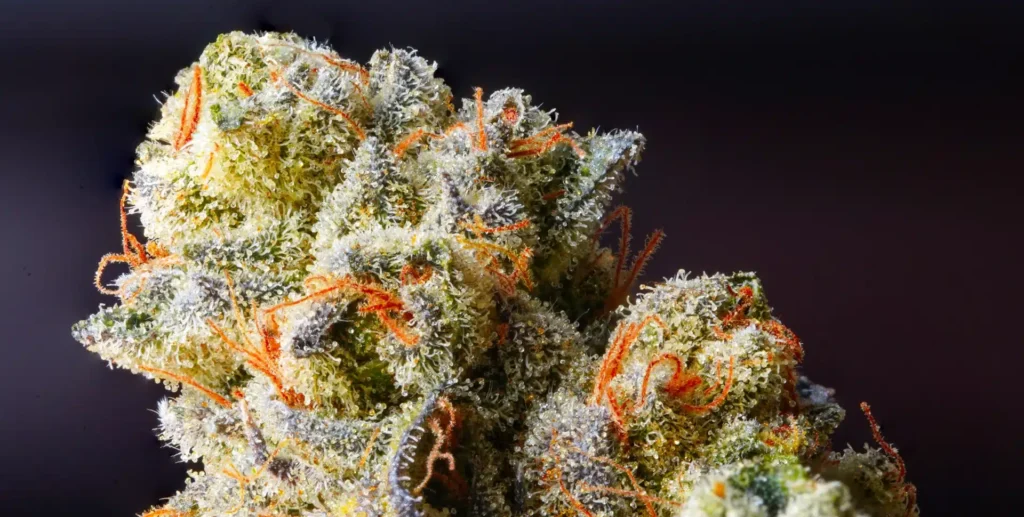The future of cannabis consumption has arrived with the surge of interest in THCA Flower. This cannabinoid, long overshadowed by its more renowned counterparts, THC and CBD, is emerging as a potential game-changer in the realm of holistic wellness. From its unique properties to the myriad of benefits it may offer, THCA is garnering attention for all the right reasons.
Dissecting the THCA Phenomenon
THCA, or tetrahydrocannabinolic acid, is a non-intoxicating cannabinoid found in raw and live cannabis. Unlike THC, THCA is non-psychoactive but still interacts with the endocannabinoid system (ECS). This interaction is thought to yield a plethora of effects on human health, making it a hot topic among both the medical community and The Dopest Shop.
THCA vs. THC: Understanding the Distinction
One of the key differences between THC and THCA is their chemical structure, which directly affects how each molecule interacts with the body. While THC is well-known for its intoxicating effects, THCA, found in the raw cannabis plant, must be decarboxylated—usually by heat—before it becomes THC and can deliver a high.
The Science Behind THCA’s Benefits
Emerging studies suggest that THCA could have anti-inflammatory, neuroprotective, and antiemetic (anti-nausea) properties. Even though more research is needed, the anecdotal evidence is compelling. These properties potentially make THCA flower a candidate for various therapeutic applications without the concern of intoxication.
The Health Benefits of THCA Flower
The potential health benefits of THCA flower are wide-ranging, but what is it that makes it so revered?
A Natural Anti-Inflammatory
Inflammation is the body’s response to injury, illness, or infection, but chronic inflammation can contribute to a range of health issues, from autoimmune diseases to cancer. Preliminary studies on animals show that THCA has the potential to alleviate inflammation in a manner distinct from traditional over-the-counter anti-inflammatory medications.
A Gentle Neuroprotector
THCA has shown promising results as a neuroprotectant, a class of compounds that can help protect the brain from damage. This finding could be particularly impactful in the realm of treating neurodegenerative diseases, such as Parkinson’s and Alzheimer’s.
Calming the Waves of Nausea
Nausea and vomiting are common symptoms that accompany many illnesses, from the flu to chemotherapy. In a study published in the British Journal of Pharmacology, THCA was found to be several times more potent than THC in reducing nausea in shrews, offering a natural alternative for those who suffer from this often-debilitating side effect.
The Intersection with Traditional Medicine
The incorporation of THCA flower into traditional medical treatment is an area that is only beginning to be explored. From palliative care to managing chronic pain, THCA could soon become an integral part of the medical toolkit.
THCA in Pain Management
The potential of THCA in managing pain lies in its anti-inflammatory properties, which could be a particularly welcomed addition to the current opioid crisis. With further research, THCA could offer a less addictive alternative for chronic pain sufferers.
Enhancing Treatments for Neurological Disorders
Neurological disorders, like multiple sclerosis and epilepsy, are complex and often necessitate a multifaceted treatment approach. THCA’s neuroprotective potential could complement current treatments, potentially enhancing patient outcomes and quality of life.
The Role of THCA in Mental Health
Mental health has long been an area in need of innovative treatment options. The potential of THCA as a natural anxiolytic presents an exciting possibility for managing anxiety disorders like PTSD and general anxiety.
Navigating Legal and Accessibility Hurdles
Despite its potential, accessibility to THCA flower is subject to a myriad of legal and regulatory limitations.
The Thorny Legal Landscape
Cannabis laws are evolving, with some areas legalizing the use of cannabis for both recreational and medical purposes. However, the specific legal status of THCA can still be murky, with some legislation only recognizing THC and CBD.
Overcoming Accessibility Hurdles
For individuals seeking to explore THCA flower’s wellness benefits, access can be a significant barrier. While some dispensaries offer THCA-rich strains, finding and affording these products can be challenging, especially in regions with strict cannabis laws.
The Road to Widespread Acceptance
With continued advocacy and research, the hope is that THCA will become more widely accepted and accessible. This involves not only legislative changes but also public education on the distinctions between THCA and THC flower.
Utilizing THCA in Everyday Wellness Regimens
For those who have secured access to THCA flower, integrating it into a wellness routine can be an exciting endeavor.
Finding the Right Strain and Dose
With the wide variety of cannabis strains available, finding one that is high in THCA requires some research. Additionally, determining the right dose can be a matter of trial and error, as the optimal quantity varies from person to person.
Methods of Consumption
From smoking to vaporizing or even using tinctures, there are multiple ways to consume THCA flower. Each method offers different onset times and durations of effects, so personal preference and the desired effect should guide the choice. Some users prefer concentrates for a more potent experience, often using dab rigs to vaporize THCA extracts efficiently. For added convenience and temperature precision, many enthusiasts turn to an electric dab nail, which replaces traditional torches and provides consistent heat levels. This not only enhances flavor and control but also makes the dabbing process safer and more accessible for beginners and experienced users alike.
The Holistic Approach
Using THCA flower as part of a broader approach to wellness, including diet, exercise, and other complementary treatments, can amplify its benefits. Practicing mindfulness and adopting a healthy lifestyle can further support the health properties of THCA.
The Future of THCA in the Cannabis Industry
Given its advantages and growing body of evidence supporting its health benefits, the trajectory of THCA flower in the cannabis industry looks promising.
The Potential for New Products
As the market for cannabis products expands, there is potential for new lines of THCA-infused products, such as edibles, topicals, and sublingual sprays, broadening the ways in which THCA can be consumed.
Research Initiatives and Funding
The continued research into the benefits of THCA is critical for its acceptance as a therapeutic option. The industry needs to allocate resources and funding to support studies that can substantiate the anecdotal evidence with scientific findings.
Public Perception and Education
Shifting the public perception of cannabis-derived treatments, including THCA flower, is essential. Education initiatives can foster a better understanding of what THCA is and its potential to improve health without the stereotypical “stoner” associations.
Conclusion
THCA flower is more than just a novelty in the world of wellness; it represents a noteworthy shift in our approach to holistic health. Its non-intoxicating nature, combined with its potential to address a variety of health concerns, makes it an exciting field of exploration for both medical professionals and those seeking natural remedies.
While the road to widespread acceptance and accessibility may be paved with challenges, the growing body of evidence and changes to cannabis laws suggest that THCA flower is here to stay. With further research and a concerted effort to educate the public, the future of THCA in cannabis wellness looks bright, promising, and on the verge of a health revolution.






